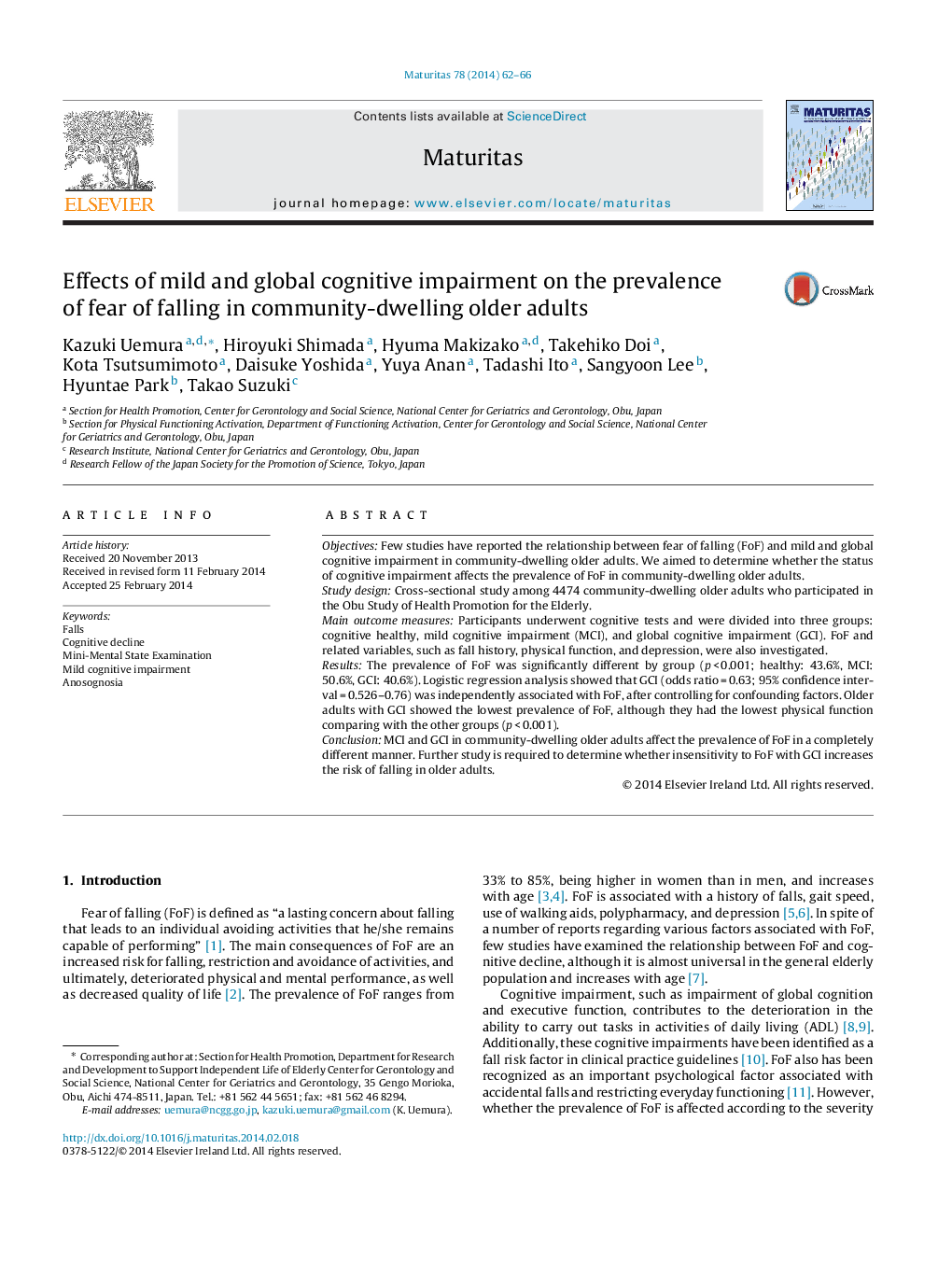| Article ID | Journal | Published Year | Pages | File Type |
|---|---|---|---|---|
| 1917398 | Maturitas | 2014 | 5 Pages |
ObjectivesFew studies have reported the relationship between fear of falling (FoF) and mild and global cognitive impairment in community-dwelling older adults. We aimed to determine whether the status of cognitive impairment affects the prevalence of FoF in community-dwelling older adults.Study designCross-sectional study among 4474 community-dwelling older adults who participated in the Obu Study of Health Promotion for the Elderly.Main outcome measuresParticipants underwent cognitive tests and were divided into three groups: cognitive healthy, mild cognitive impairment (MCI), and global cognitive impairment (GCI). FoF and related variables, such as fall history, physical function, and depression, were also investigated.ResultsThe prevalence of FoF was significantly different by group (p < 0.001; healthy: 43.6%, MCI: 50.6%, GCI: 40.6%). Logistic regression analysis showed that GCI (odds ratio = 0.63; 95% confidence interval = 0.526–0.76) was independently associated with FoF, after controlling for confounding factors. Older adults with GCI showed the lowest prevalence of FoF, although they had the lowest physical function comparing with the other groups (p < 0.001).ConclusionMCI and GCI in community-dwelling older adults affect the prevalence of FoF in a completely different manner. Further study is required to determine whether insensitivity to FoF with GCI increases the risk of falling in older adults.
